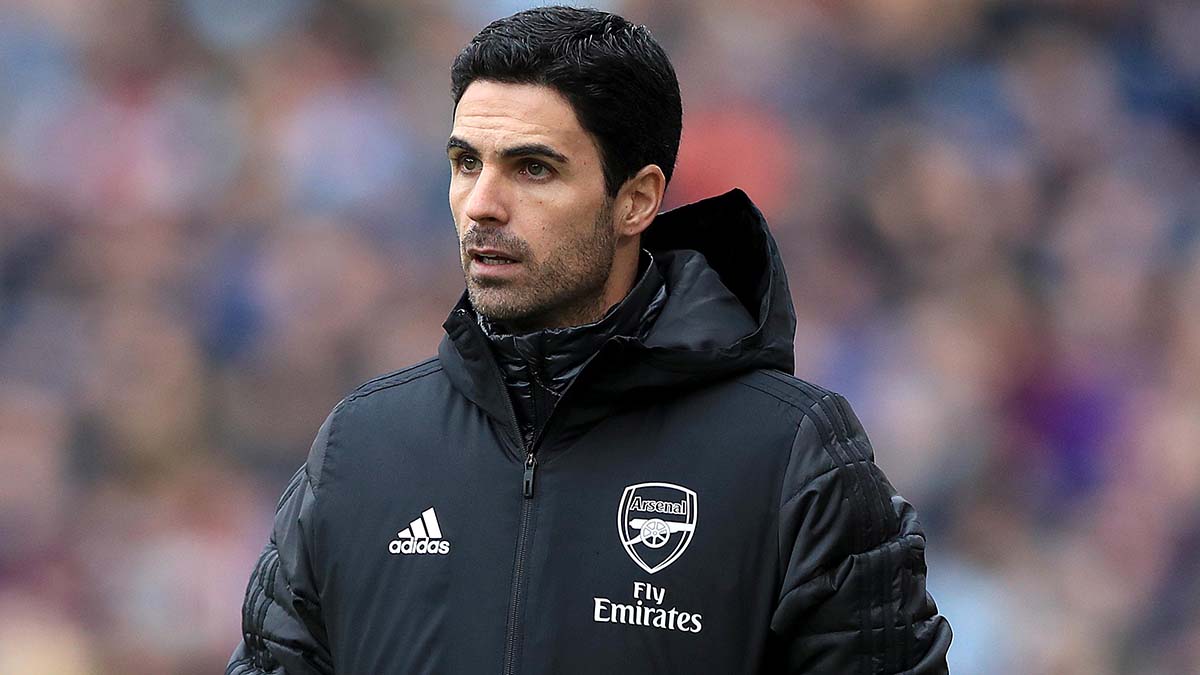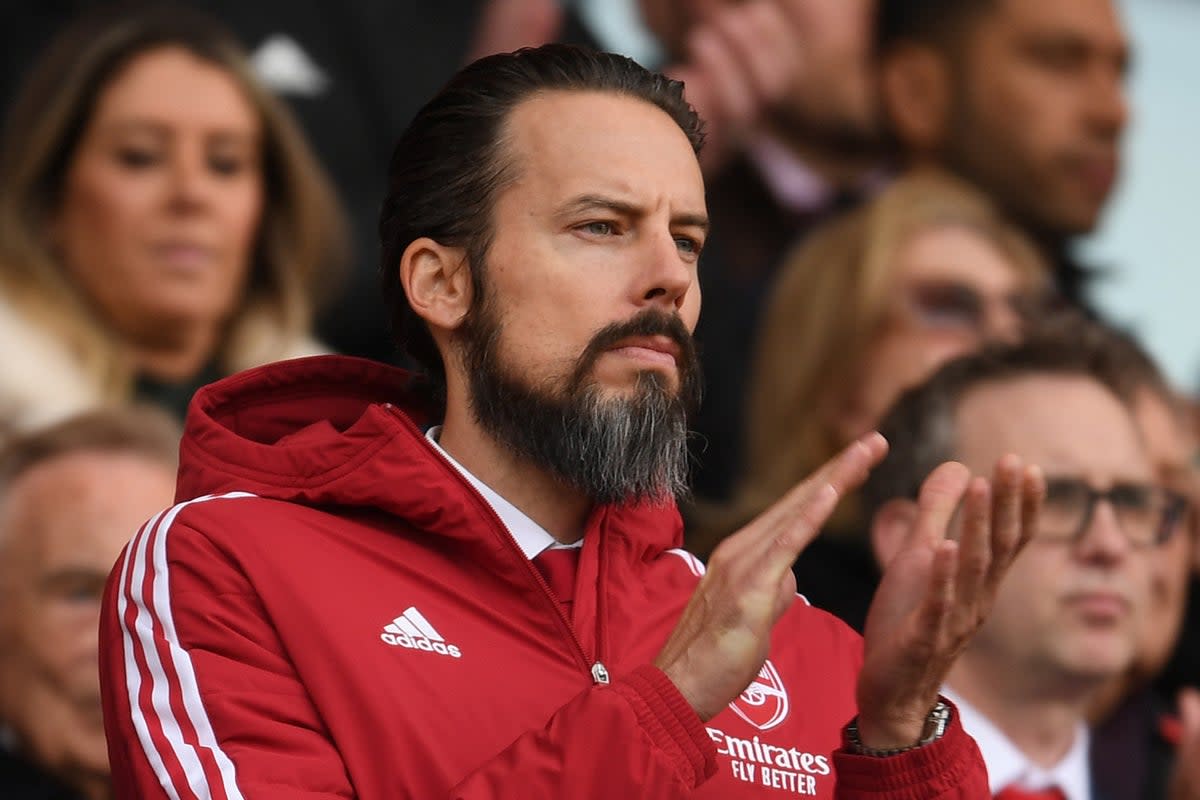With the recent conclusion of the All or Nothing: Arsenal season, we take a look at a handful of talking points from the Amazon series.
From HBO’s Hard Knocks to Netflix’s Formula 1: Drive to Survive, the sports docuseries has never been as prevalent as it is today. Getting behind-the-scenes access to high level professional athletes has captivated audiences, who in many cases live vicariously through their favorite players and clubs.
Amazon’s answer to the sports docuseries boom, All or Nothing, has covered American football, rugby, ice hockey, and yes, association football. Starting with Manchester City in 2018, the series has gone on to cover Tottenham, Juventus, and the Brazil national team. The latest installment takes us to the other half of North London, covering a resurgent Arsenal club looking to return to its days of glory.
Concluding a few weeks ago, we’ve had time to wrap our minds around it to present four talking points from the dramatic season.
Arteta, the Protagonist

A central focus of the All or Nothing series is always the manager. Given the influence they have on running their clubs, it is only fair that the tone and narrative of the docuseries are constructed around the managers.
Thereby, the success of the series heavily rides on them. One of the main reasons why the 2018 installment of All or Nothing: Manchester City was so compelling was because it gave us a glimpse into the eccentricity and genius of Pep Guardiola. All or Nothing: Tottenham Hotspur was for all practical purposes All or Nothing: Jose Mourinho; the blend of arrogance and charisma was a blockbuster concoction. Andrea Pirlo’s quiet charm not translating onto the screen had a role to play in the tepidness of the Juventus installment that came out last year.
So, how did Mikel Arteta stack up against his All or Nothing predecessors?
Since the moment he took over the reins at Arsenal in 2019, Arteta has always talked a good game. There’s been a conscious effort to cultivate a public persona of a man with a plan. Given the state of the club when he was appointed, it was something he needed to do. Be it pitchside or in press conferences, he has always been aware of the image he’s projecting. This is not to say he’s being inauthentic, it is just that he’s showing people only what he wants them to see. We see more of the same in All or Nothing.
Arteta’s passion for the club and his obsession with the job instantly comes through. His effectiveness as a communicator is evident. To the player and viewer alike, his energy feels infectious. The Spaniard does not have Guardiola’s charm or Mourinho’s magnetism, but there is an earnestness to him. It is a trait that lends itself well towards television.
The Team Talks
We can’t talk about Arteta without touching upon his team talks. While the derision that they’ve been met with is understandable, the reaction is also emblematic of modern football discourse. Some of Arteta’s motivational tools — blasting “You’ll Never Walk Alone” at the training ground to prepare for a visit to Anfield, the lightbulb gag to drum home a point of staying connected to shine, the story about the “great night” he met his wife — are unconventional. But, the reason they’ve been lampooned is that they preceded 4-0, 3-1, and 2-0 losses. There is a fine line between being dubbed asinine or astute and that line is hindsight.
The attention the team talks have received is also reflective of blurred lines between reality and content. We have been conditioned to be entertained by what we consume on streaming platforms. So it is often easy to forget that a narrative constructed around reality isn’t fiction. Arteta’s speeches are not intended to entertain the viewer sitting on their couch munching on a pack of crisps — they are for the group of men with adrenaline pumping in their veins as they prepare to step out for a match in front of 50,000 people. The cameras are on Arteta, but he is not acting.
Of Course It’s a PR Job

Aside from their overt emotionality, Arteta’s team talks further came under the scanner because of the lack of tactical instruction in them. The fact that a manager’s tactical approach and strategy has been documented in previous All or Nothing seasons only made its omission more glaring here. Far from pointing to managerial ineptitude, this is a further illustration of Arsenal keeping their cards close to their chest. Any clips from which rivals could draw insight have been left on the cutting room floor. If it has not been edited out, it has been sanitized. Arteta’s conversations with Edu, the player sit downs with assistant coaches, and the meetings of the top brass are inconsequential snippets.
Josh Kroenke positioning himself as an empathetic owner who had no role to play in the club’s running before taking over as majority shareholder in 2018, an entire episode dedicated to Emile Smith-Rowe and Bukayo Saka’s journey from the academy to the first team, and the win over Tottenham and the feature on Granit Xhaka’s life off the pitch are just some of the more pronounced examples of how the club has leveraged the series to give itself a facelift.
Arsenal fans are all too aware that it is a PR exercise, but that hasn’t stopped them from lapping it up. Who doesn’t like behind-the-scenes footage of their club?
Timing Has Helped the Show
Arsenal’s blistering start to the season this year coincided with the release of the series and the feel-good factor that’s been growing at the club since the summer. The role this has played in the series being well received cannot be overlooked. Fans have been told to “trust the process” over the past couple of years, and finally seeing that come to fruition has only furthered their interest in the process. There has been a greater receptivity to the club and coach’s messaging in the show. Hindsight works in strange ways. Inadvertently, the show has become a barometer to gauge how far the club has come in the past year.








